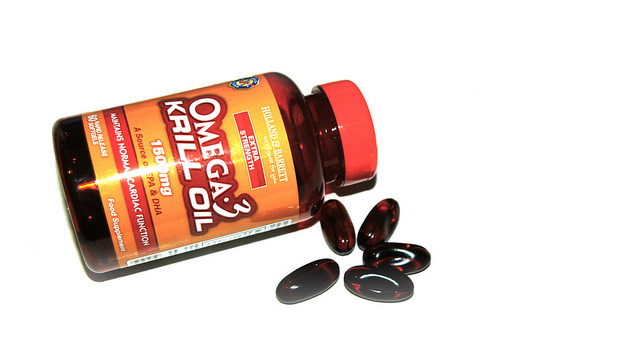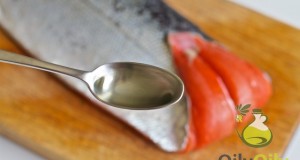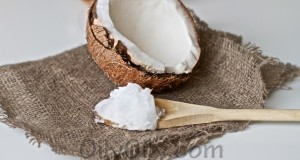
Photo credit: flickr
Krill oil nutrtion facts show that krill oil is a supplement beneficial for regulating cholesterol levels and maintaining a healthy heart. Krill oil is derived from krill, small marine crustaceans, 85 species of which are found in cold oceans. Krill oil is high in omega-3 fats, antioxidants and vitamins.
Contents
Krill oil: nutrition facts
Krill oil is rich in omega-3 essential fatty acids, namely eicosapentaenoic acid EPA and docosahexaenoic acid DHA. As Alternative Medical Review states, the most beneficial properties of krill oil are connected with these fatty acids, as they make it anti-inflammatory, anti-thrombotic and anti-atherosclerotic (read more about krill oil benefits). Omega-3 fatty acids in krill oil are bonded to phospholipids, which makes them easier to be absorbed in the body. Phospholipids make up about 40% of krill oil and contain choline, an essential nutrient used in the cell membranes. Choline is necessary for fat transportation and metabolism as well as for nerve transmission. Krill oil also contains Vitamin A, Vitamin E and D. There is also canthaxanthin and astaxanthin in krill oil. Always read the label about krill oil nutrition facts to be sure that the krill oil you are buying contains the above-mentioned nutrients.
SEE ALSO: How to Choose the Best Krill Oil
Astaxanthin
Astaxanthin is a carotenoid responsible for krill’s red color. It possesses antioxidant as well as anti-inflammatory properties. The antioxidant effect of krill oil has been detected to be 48 times more than to fish oil has, as it is stated in the Journal of Natural Products.
Krill oil in cholesterol researches
Krill oil benefits have been assessed in a number of researches for regulating cholesterol levels in blood. The Canadian researchers carried out a study published in Alternative Medicine Review in December 2004. They involved 120 participants, comparing krill oil with fish oil and placebo. Krill oil reduced LDL or ‘bad’ cholesterol by 34 percent as well as increased HDL by 43.5 percent when compared to the placebo. 1-1.5 grams of krill oil lowered LDL more successfully than 3 grams of fish oil. High doses of krill oil (3 grams) reduced blood triglycerides and fish oil didn’t. Is krill oil better than fish oil? The researchers connect the achieved results with the molecular structure of krill oil, phospholipids and astaxanthin in it.
YOU MIGHT ALSO LIKE: How to Use Krill Oil for Arthritis Treatment
Krill oil dosage
Krill oil dosage varies from 500 mg to 3 g per day. A lot depends on the brand of krill oil, so check the label for EPA and DHA amounts and consult a professional medical. The average recommended dose is 1-2 grams a day. Krill oil dosage, however, depends on the body weight and health conditions. Krill oil dosage for kids is determined by a pediatrician. It is recommended to give children supplements made especially for them (read more about benefits of krill oil for kids). People with health problems, for example arthritis, high cholesterol levels or heart disease, should take a dosage advised by their doctor depending on the specific case.
Considerations
Talk to your health care provider for the optimal dosage and check how krill oil interacts with your medications. Remember that krill oil cannot be used instead of any conventional medications you are taking for lowering cholesterol.
 Oilypedia.com – Benefits And Uses Of Supplemental and Essential Oils
Oilypedia.com – Benefits And Uses Of Supplemental and Essential Oils 


